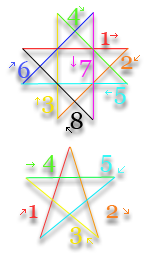|
Lietuvēns
Lietuvēns or lietonis (in Latgale also can be called “lītūņš”, similar to Slavic “mara” (Russian: ''Мара'') or Lithuanian “lauma”) is a mythological creature in Latvian folklore. According to Latvian folk epics and omens, ''lietuvēns'' is the soul of a murdered (strangled, drowned or hanged) person cursed to live in this world as long as it has been meant to live. By some beliefs, it is the soul of an unbaptized child. It attacks both people and domestic animals. Sleep paralysis is thought to be torture or strangling by a lietuvēns. When under attack, one must move the toe of the left foot to get rid of the attacker. It is also said that lietuvēns is able to penetrate into houses, even through keyholes and, aside from nightmares, can strangle the victim. Appearance In Latvian folk culture, lietuvēns is usually described as a labored wretched child. It is small in height, moves fast, and comes at noon or night. Sometimes, but rarely, it turns into ugly v ... [...More Info...] [...Related Items...] OR: [Wikipedia] [Google] [Baidu] |
Auseklis
Auseklis is a Latvian god, a stellar deityLurker, Manfred (2004). ''The Routledge dictionary of gods and goddesses, devils and demons''. Routledge. p. 25. . that represents a celestial body, but possibly not the same as Venus (Rīta zvaigzne) - the first "star" (how Latvians call it) to appear in the mornings on the east side of the sky. He is the third most popular deity in Latvian mythology after Saulė and Mēness, but is almost exclusively mentioned in folk songs. Name The name ''Auseklis'' stems from the root '' aus-'' ('dawn'), attached to the derivative suffix ''-eklis'', and is etymologically related to other Indo-European deities of the dawn. This deity is also variously known as ''Auseklenis'', ''Auseklenč'', ''Ausekleņš'', ''Auseklīts'', ''Auseklītis'', ''Ausekliņis'', ''Ausekliņš'', ''Auseklius''. Role Auseklis is closely associated with Mēness ("moon"). They both are '' Dieva dēli'' ("sons of God"), as is Ūsiņš, and are thus confused with each oth ... [...More Info...] [...Related Items...] OR: [Wikipedia] [Google] [Baidu] |
